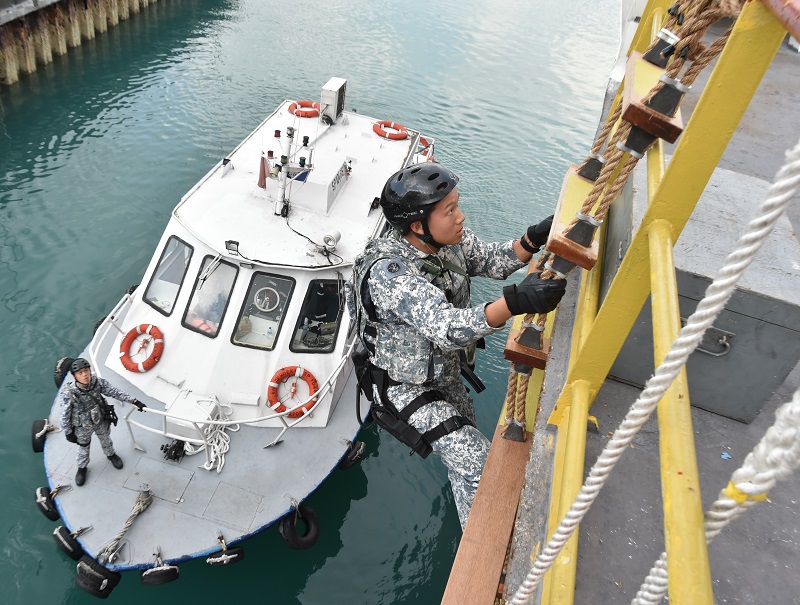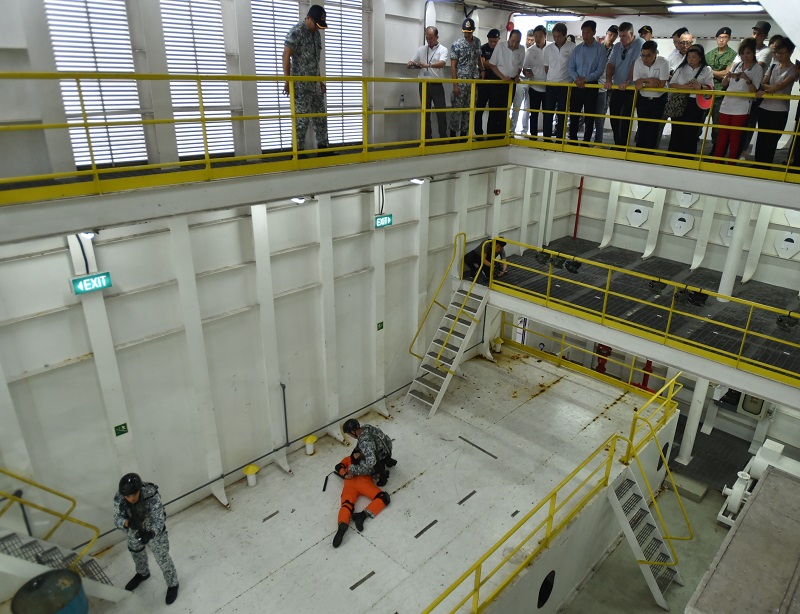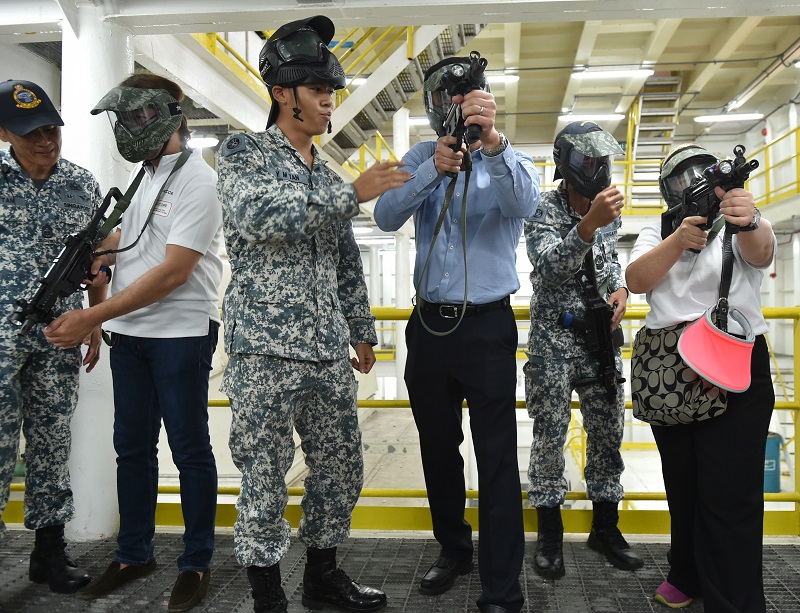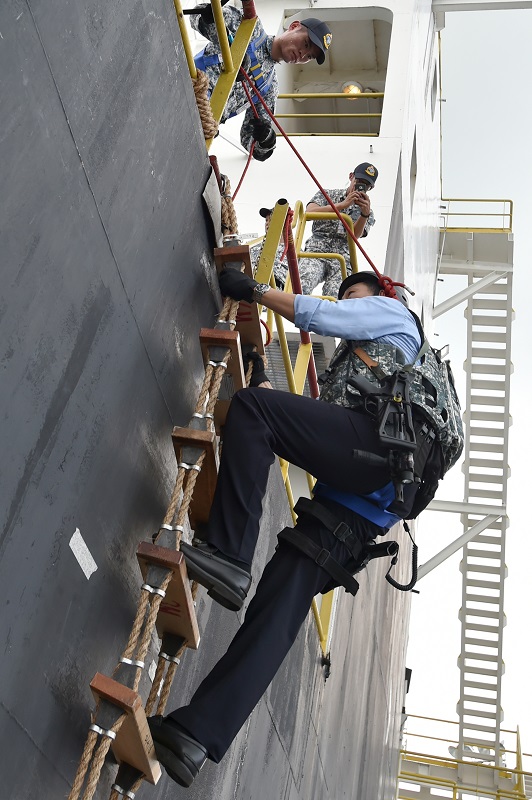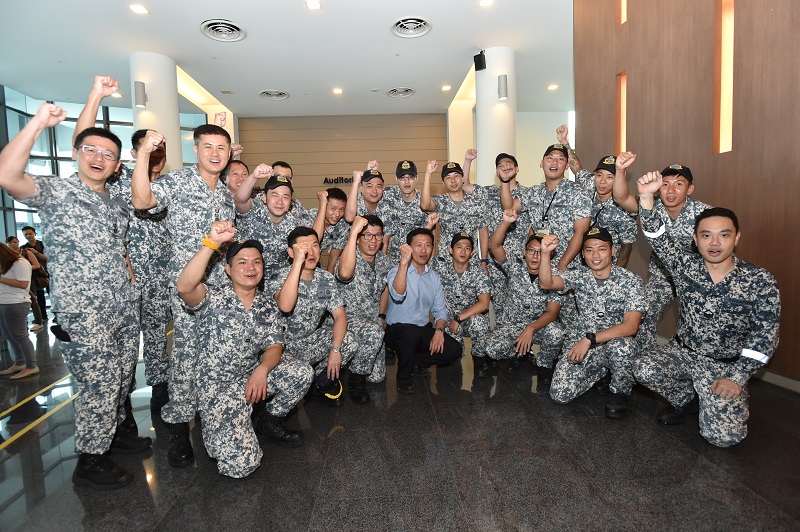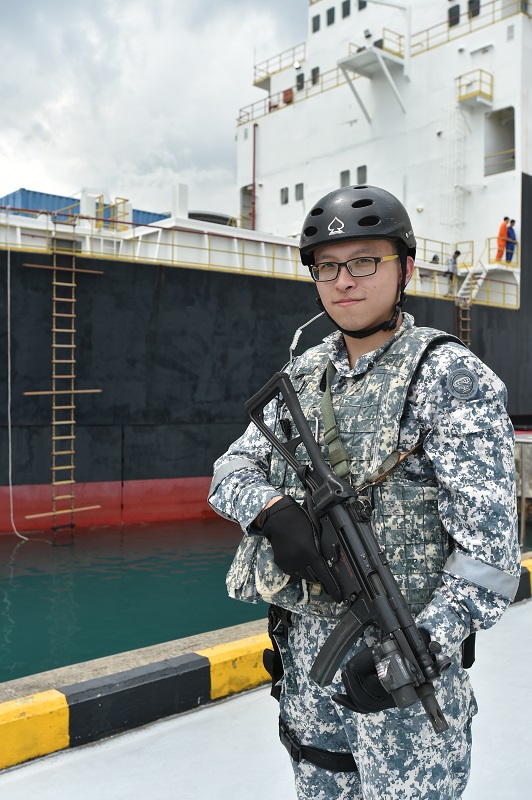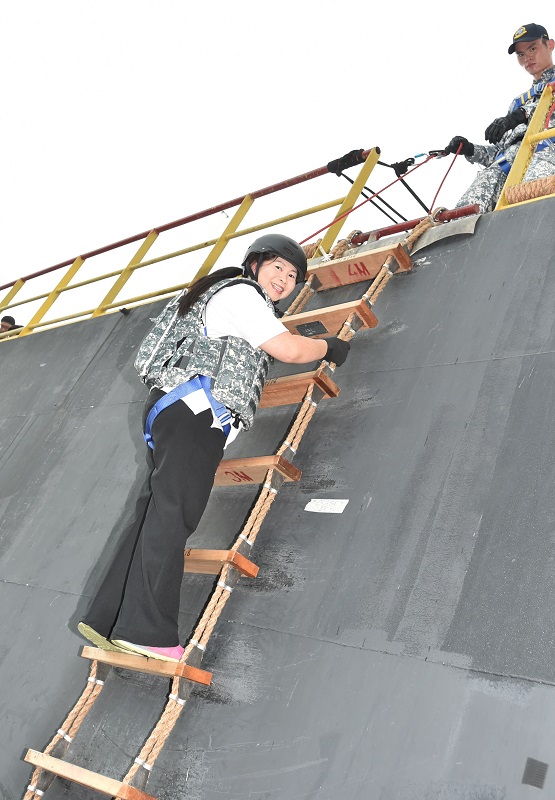OPS & TRAINING
MARSHALS OF THE SEA SAFEGUARDING THE S'PORE STRAIT
19 Apr 2018
Out on the Singapore Strait, an Accompanying Sea Security Team (ASSeT) from the Republic of Singapore Navy (RSN) boards a merchant vessel to carry out a spot-check.
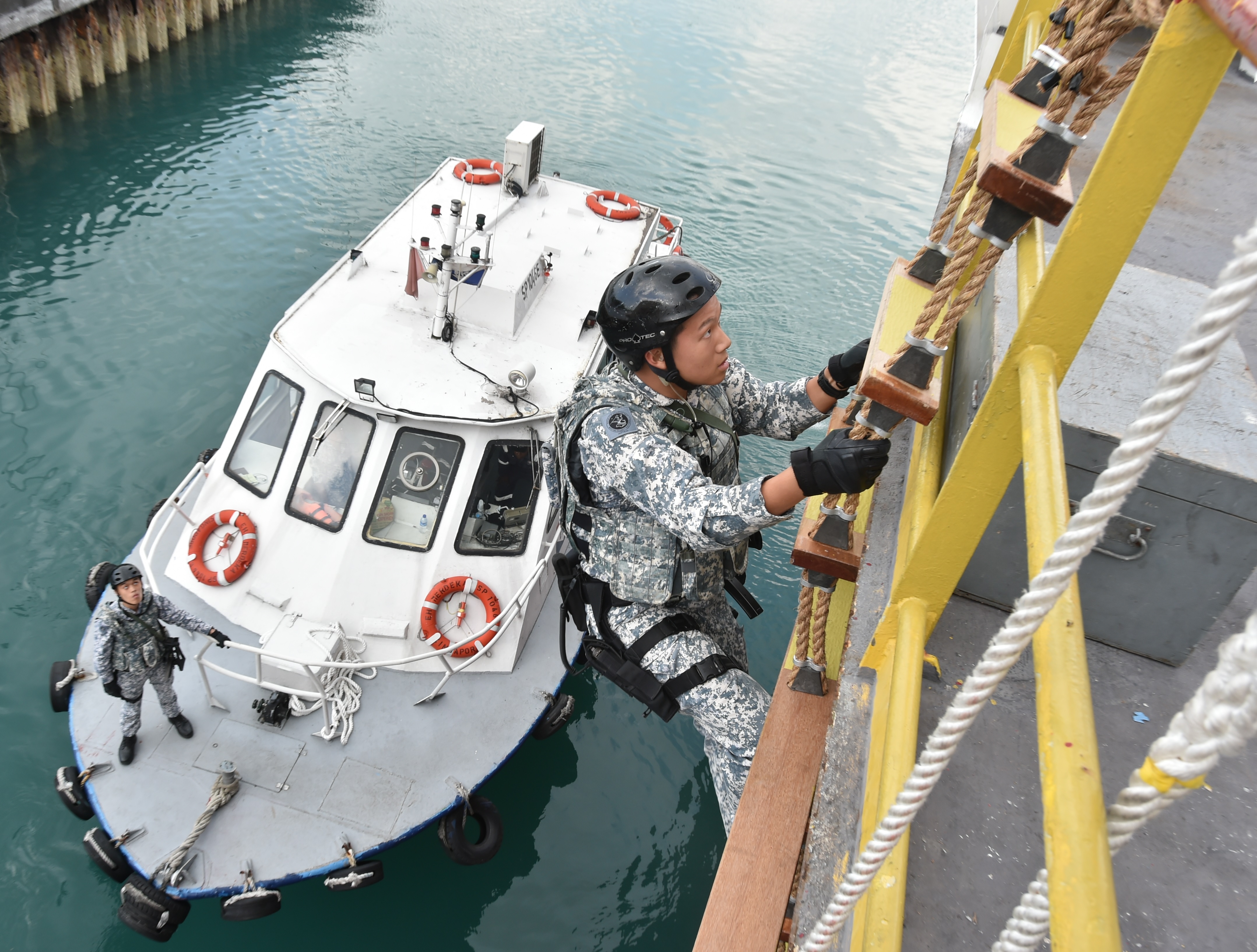
Out on the Singapore Strait, an Accompanying Sea Security Team (ASSeT) from the Republic of Singapore Navy (RSN) boards a merchant vessel to carry out a spot-check.
The ship's captain is directed to a recommended anchorage, but does not take well to the team's polite but firm instructions. He refuses to comply, and gets into an argument with the ASSeT operators.
At the same time, the team actively updates headquarters, which is concerned that the operation is taking longer than usual.
Fortunately, the captain eventually complied with the team's instructions to berth the ship and allow them to carry out their duties.
This was an incident that Lieutenant (LTA) (NS) Mervyn Low witnessed during a boarding and search operation when he was a Full-time National Serviceman (NSF).
"When such situations arise, we have to be alert because we don't know if the captain will turn hostile. It is a possible outcome," said the 29-year-old Operationally Ready National Serviceman (NSman), who works as an auditor.
Thinking on their feet and reacting fast is par for course for the ASSeT operators in 180 Squadron (SQN), which comprises an active unit of about 50 Regulars and NSFs, as well as NSmen who join in the operations during their In-camp Training (ICT).
Also known as Sea Marshals, these servicemen work 24/7 to help ensure safe passage for merchant vessels journeying through the Singapore Strait, one of the world's busiest shipping routes.
As part of the RSN's Maritime Security Task Force, they carry out checks on commercial vessels that have been assessed to be security threats. The assessment is based on factors such as crew data and previous ports of call. Their voyage paths are also assessed for detours and unusual movements.
Working together in teams of four or eight, ASSeT operators and Police Coast Guard personnel search the commercial vessel for suspicious activity and stowaways, as well as contraband items and weapons.
Operations can last between three and six hours, depending on the size of the ship and complexity of the operation. In the past year, ASSeT operators carried out 585 boarding and search operations.
"180 SQN conducts frontline boarding operations on sensitive vessels to prevent and deter acts of maritime terrorism as they enter into Singapore ports. These are vessels with cargo that can create damage to infrastructures or installations," said Lieutenant Colonel (LTC) Nick Neo, Commanding Officer of 180 SQN.
New ASSeT operators have to undergo a four-week training to prepare for the role. In addition to skills such as shooting and weapon handling, swimming and climbing, they must also be knowledgeable on subjects like the anchorage system and Rules of Engagement (ROE).
Operating in such volatile situations, they learn to react quickly to changes. "We need to have situational awareness, because there are a lot of things that are unpredictable, and we have to assess the situation based on our experience," explained NSF operator Corporal First Class (CFC) Li Weng Kin, 22.
Their skills were shown to a group of Advisory Council on Community Relations in Defence (ACCORD) members who were hosted by 2nd Minister for Defence Ong Ye Kung to a visit of 180 SQN at the Boarding and Search Trainer in Pulau Brani on 19 Apr.
During the visit, the ACCORD members watched a demonstration of the ASSeT boarding a commercial vessel using a Jacob's ladder rigged to the side of the ship.
Climbing unharnessed, they sometimes have to scale heights of up to 15m, while carrying protective gear and weapons weighing up to 20kg.
The ACCORD members also watched how the operators apply the ROE in situations of varying degrees of danger. Operating in close quarters, the ASSeT must quickly determine the type of force to use on non-compliant and aggressive crew members. Deadly force – the highest level – is only applied when the lives of the team are in danger.
Mr Ong and the ACCORD members tried their hand at firing the MP5 sub-machine gun, which is the ASSeT's primary weapon. They also scaled the Jacob's ladder from the shore while wearing the Flotation Ballistic Armour Vest.
Climbing the ladder in gear gave Ms Joanna Portilla an appreciation for the work of the ASSeT operators. Said the ACCORD Family and Community Council Member and Patron of People's Association Women's Integration Network (WIN) Council: "The climb was difficult because of the extra weight (of the gear). And after you climb up, you (the ASSeT operator) immediately have to get into action. So physical fitness is very important."
"I'm very glad that we have the foresight and the training in place to train our men to be ready for any type of challenge ahead", the 46-year-old added. "They really need the right training to face up to (such challenges), because there's no time for fear. I'm really impressed by what they've gone through – their tenacity and bravery."
Mr Kelvin Ang, an ACCORD Family and Community Council Member, agreed.
"There are so many threats out there – whether it's a malicious vessel or a bomb on a vessel, they can come into our waters at any time. Vigilance is key."
"After today, I appreciate all the effort that has gone in – the training and sacrifices the personnel have made – to keep Singapore safe," said the 41-year-old, who is the founder of the Cheekiemonkies Blog and a Financial Planner with AIA Singapore.
ALSO READ IN OPS & TRAINING
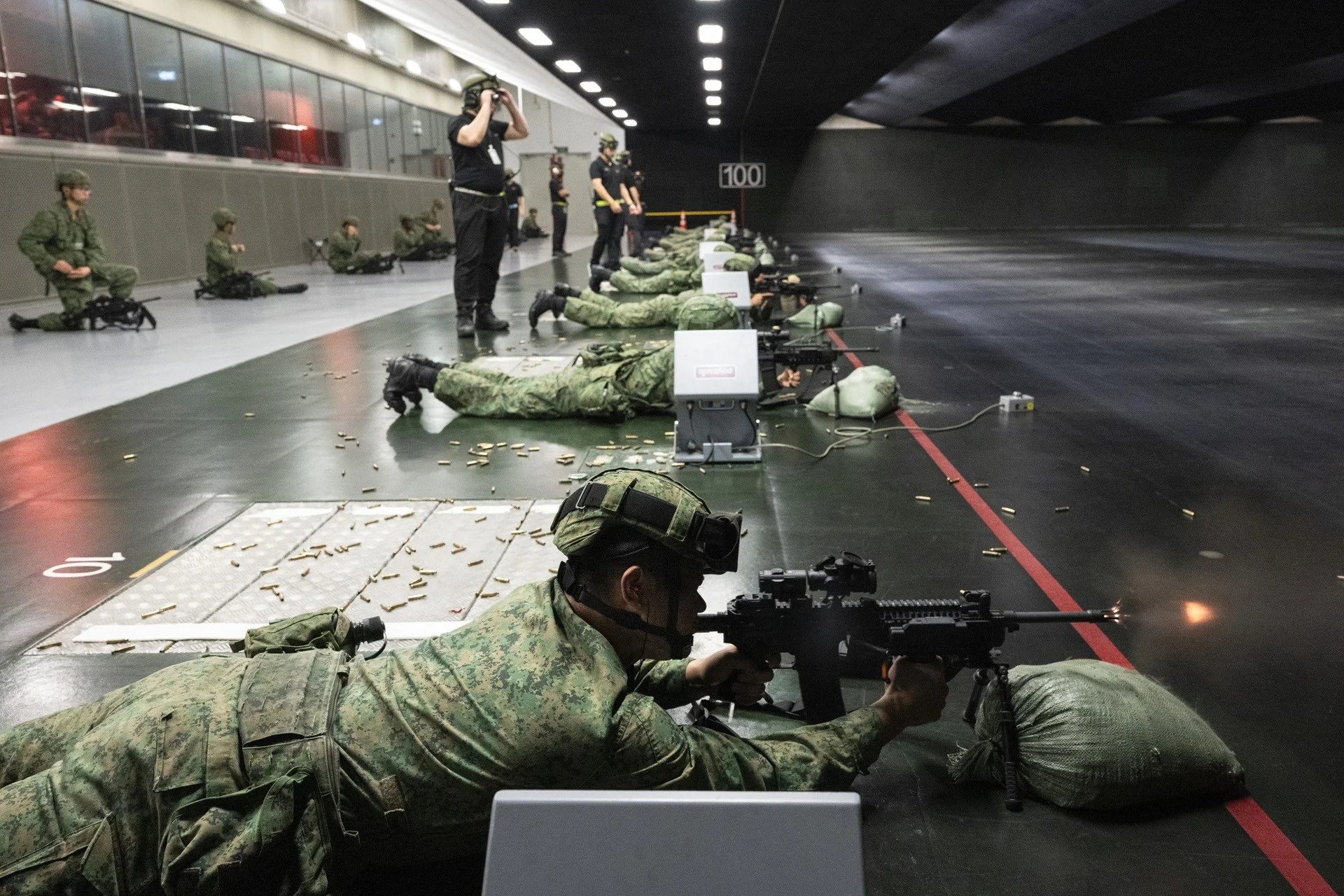
New firing range complex at Bedok Camp; Medical Classification System to be redesigned
27 Feb 2026
To train soldiers for a more complex environment, the SAF will build a new Multi-Mission Range Complex, as well as introduce opportunities for national servicemen to take on new roles, and more ways to volunteer.
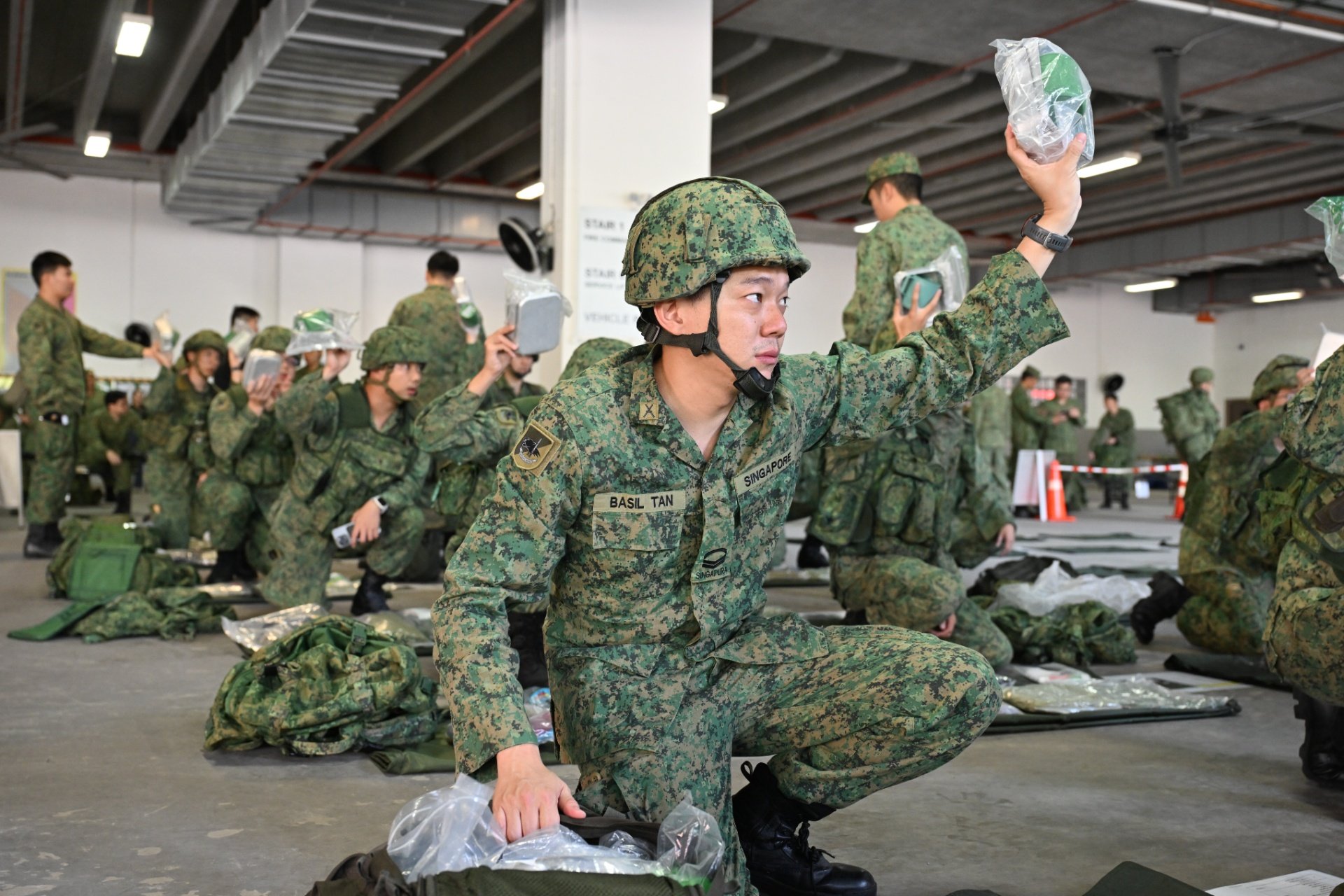
Reaffirming their commitment to defence
07 Feb 2026
Over 3,000 NSmen displayed their commitment to Singapore’s defence at a MOBEX in Selarang Camp.
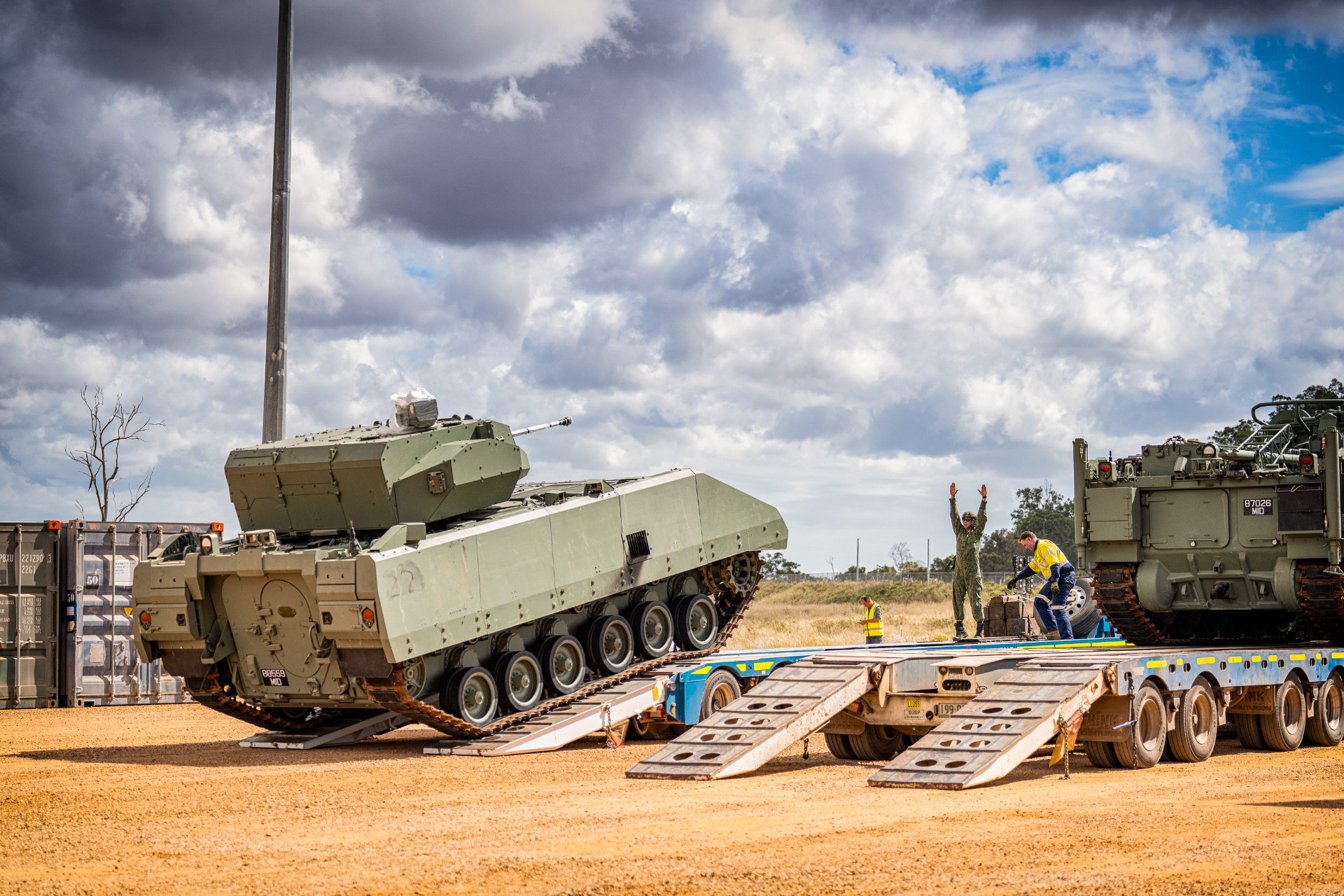
First in, last out at Ex Wallaby 2025
06 Nov 2025
Meet the teams who toil behind the scenes to enable the smooth conduct of the SAF’s biggest unilateral overseas exercise.

